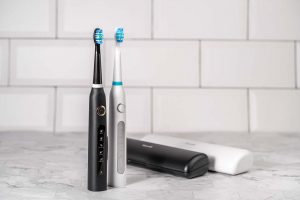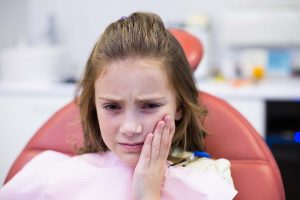The Connection Between Oral Health and Sleep Apnea
Sleep apnea is a sleep disorder characterized by pauses in breathing or shallow breaths during sleep. It can be classified into three types:
Obstructive sleep apnea (OSA)
Central sleep apnea (CSA)
Complex sleep apnea syndrome (CSAS)
OSA occurs when the throat muscles relax and block the airway, CSA happens when the brain fails to send proper signals to the muscles controlling breathing, and CSAS is a combination of both. Common causes and risk factors include excess weight, age, gender (more common in men), family history, smoking and alcohol use, nasal congestion, medical conditions (such as high blood pressure and diabetes) and sleeping position.
Sleep Apnea Wellness: Five Must-Knows for a Healthier Tomorrow
Maintaining good oral health is important for individuals with sleep apnea. Five important things to take care for individuals with sleep apnea:
Keep your oral appliance clean
Clean your oral appliance daily using a toothbrush and mild soap or denture cleaner. This helps prevent the buildup of bacteria and ensures optimal hygiene.
Brush and floss regularly
Maintain a consistent oral hygiene routine by brushing your teeth twice a day and flossing at least once a day. This helps prevent dental issues and maintains overall oral health.
Visit your dentist regularly
Regular dental check-ups are essential for individuals with sleep apnea. Inform your dentist about your condition so they can monitor your oral health and make any necessary adjustments to your treatment plan.
Stay hydrated
Dry mouth is a common side effect of sleep apnea and can increase the risk of oral health problems. Stay hydrated by drinking plenty of water throughout the day to promote saliva production and protect your teeth and gums.
Avoid smoking and excessive alcohol consumption
Smoking and excessive alcohol consumption can worsen sleep apnea symptoms and have negative effects on oral health. Quit smoking and limit alcohol intake to improve both your sleep and oral health.
Understanding How Oral Health Impacts Sleep Apnea
There is a significant relationship between oral health and sleep apnea. The structure and condition of the oral cavity, including the teeth, gums, and tongue, can affect the severity of sleep apnea symptoms. Poor oral health, such as gum disease or tooth loss, can contribute to the development or worsening of sleep apnea. On the other hand, certain oral appliances, such as mandibular advancement devices or tongue retaining devices, can be used as treatment options for sleep apnea. Maintaining good oral hygiene and seeking dental care can play a crucial role in managing sleep apnea and improving overall sleep quality.
Oral Appliances as Game-Changers in Sleep Apnea Therapy
Oral appliances are a common treatment option for sleep apnea. These devices are designed to be worn during sleep and help keep the airway open by repositioning the jaw or tongue. By adjusting the position of the oral structures, oral appliances can effectively reduce or eliminate snoring and improve breathing patterns during sleep. They are custom-made to fit everyone’s mouth and are often more comfortable and convenient than other treatment methods like continuous positive airway pressure (CPAP) machines. Oral appliances offer a non-invasive and portable solution for managing sleep apnea, providing relief and improving sleep quality for those affected by the condition.
Various Options for Managing Sleep Apnea
In addition to oral appliances, there are other treatment options available for individuals with sleep apnea. These may include continuous positive airway pressure (CPAP) therapy, which involves wearing a mask over the nose or over both nose and mouth during sleep to deliver a steady stream of air pressure to keep the airway open. CPAP therapy is highly effective for managing sleep apnea but may not be suitable for everyone. Other options include surgical interventions, such as Uvulopalatopharyngoplasty (UPPP) or maxillomandibular advancement (MMA), which aim to correct anatomical issues that contribute to sleep apnea.
It is extremely important for sleep apnea patients to maintain their oral health. At Langley Dental Centre, we are proud to cater to the specific oral health needs of patients from the world over. In case you have any doubts or specific questions, feel free to reach us at: Contact Our Dental Office | Langley Dental Centre (langleydentist.com)






